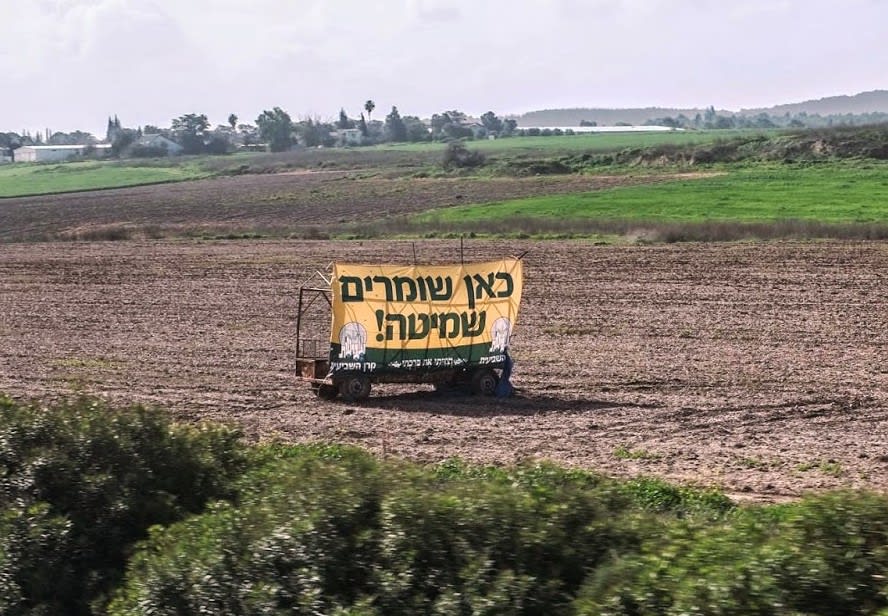A Lesson For the Children – In the Shemitta year of 5712 (1951-52), the farmers of Moshav Komemiyut let their land rest and took a full year of vacation. They did not grow anything at all during the year, occupying themselves instead with the study of Torah. Of course, when people do not work for a whole year their money dwindles, and signs of distress began to appear, but they managed to survive somehow with their savings and hope for the best.
After the end of Shemitta, the people wanted to plant their fields again. They tried to buy seeds, hoping for a good crop. They turned to farmers in the surrounding area, but they could only find wheat that had been grown during the year of Shemitta – which they did not want to use, since it was prohibited. The general manager of the farms started to worry, as did all the other inhabitants. Where would they be able to find seeds that they were allowed to plant?
They searched far and wide, and in the end they found a storehouse in a neighboring kibbutz with waste grain from two years before. Some people from Komemiyut went with the man in charge of the storehouse, and they could all see immediately that the seeds were broken open and full of worms. The air was filled with the odor of rotten grain, and it was clear from looking at the pile of grain that there was little hope of using it. The kibbutz farmer saw the people hesitating, and he told them that he didn’t think anything would grow from this grain, that it was just a waste of time to plant it. At most, it could be used as feed for cattle, but it would certainly not be worthwhile to waste the money and effort in planting. If they insisted, he would of course sell them the grain, but his advice was to forget it. But the members of the moshav had already despaired of finding anything better. They had already searched high and low, so after thinking the matter over very carefully they decided to buy the grain in spite of its poor condition and to put their faith in G-d.
Even though the grains were damaged, they paid a high price for them. And the rumor of how the people of Komemiyut had paid a large sum of money to buy rotten grain was a subject for mocking in the surrounding area.
The people began to plow and plant after the end of Succot in the eighth year, a long time after the wheat had been planted in the other farms. The work was finished in the cold of the winter.
But that year, the rains were held up and did not begin to fall until the middle of the winter. Farmers from the nearby towns, who had planted their seeds in the summer of Shemitta, saw their grains rot in the ground from the lack of rain, and when it finally came it was too late for most of them. The wheat did not grow, or only a small amount grew, and the yield was very poor. However, the fields of Komemiyut, which had just been planted, yielded large amounts of beautiful crops, and they had a much more successful season than ever before.
Everybody could see how G-d sent His blessing to those who observed the mitzva of Shemitta…
* * * * * *
Note: As is well known, rabbis in modern times have developed methods which allow farmers to work their fields during Shemitta, the most common one being the “heter mechira,” where the land is sold to a Gentile during the year. Even though many rabbis support this idea, the people of Komemiyut did not want to make use of it. In telling this story, I did not want to get involved in the controversy about this issue, which has been discussed by many prominent rabbis. Rather, I wanted to tell the true story of what happened that year, from the point of view of the farmers of Komemiyut.
Email yikhat1@smile.net.il with reactions and suggestions for stories. Reprinted with permission from Zomet Institute (www.zomet.org.il). Translated from the Hebrew by Moshe Goldberg. To subscribe to receive the complete version of Shabbat B’Shabbato please write to dan@zomet.org.
The words of this author reflect his/her own opinions and do not necessarily represent the official position of the Orthodox Union.
